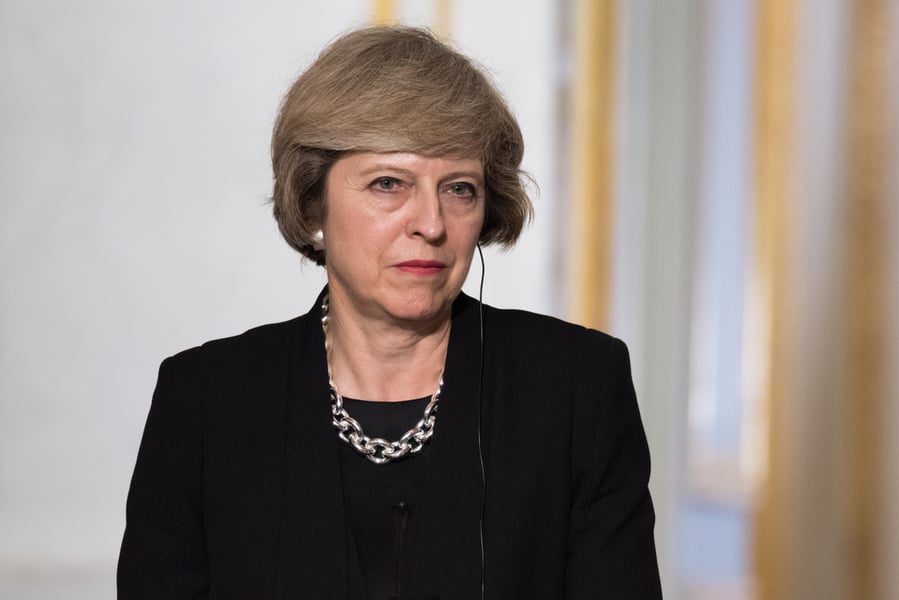After a turbulent night in the commons which saw MPs reject Theresa May's Brexit deal by the biggest margin of the modern parliamentary era industry experts have been quick to react.

After a turbulent night in the commons which saw MPs reject Theresa May's Brexit deal by the biggest margin of the modern parliamentary era industry experts have been quick to react.
John Phillips, operations manager at Just Mortgages and Spicerhaart said: "Last night's historic defeat shows that despite two years of negotiations we are no further on than we were after the Brexit vote. Brexit has split the country, but one thing most people are agreed on is that our MPs have let us down and we are in danger of switching off completely about the whole issue.
"If Theresa May (or her successor if the government is voted out following today’s vote of no confidence) doesn’t get an extension to article 50 - or manage to negotiate a deal that does go through parliament - then we will leave the EU without a deal on March 29. But I refuse to be all doom and gloom about it because negative predictions can be damaging and I genuinely don’t think Brexit will be the disaster everyone says it will.
"The UK business market is resilient and always finds a solution to whatever is thrown at it and once we are past March 29 - whether we have a deal or not - I think things will start to improve because some of that uncertainty will be removed, giving people a better idea of what the future holds."
Andrew Montlake, director at Coreco, wrote on Twitter: "If the time isn’t right for a completely new party full of new politicians with a realistic understanding of what people really need then it never will be. Cos it ain’t this government and it certainly isn’t Corbyn. Politics in the UK is at its lowest ebb. Need a reboot."
Guy Harrington, chief executive of specialist property lender Glenhawk, said: “This outcome is certainly better than the deal that was on offer, that’s for sure. The sooner it is taken off the table, the better. Hopefully any further negotiations with the EU will now be delayed, and ultimately Brexit cancelled.”
Jeremy Leaf, north London estate agent and a former RICS residential chairman, added: "On the one hand, the risk of uncertainty for the property market increases after yesterday's vote but on the other, it helps to concentrate minds on all sides as the threat of a 'no deal’ rises, which was reflected in Sterling’s strengthening immediately after the result was announced.
"Most buyers and sellers tell us that a ’no deal’ Brexit will lead to greater property market uncertainty. A ‘hard’ Brexit could prompt more investor interest from abroad although owner-occupiers might be reluctant to commit until Visa rights are clarified."
And he said: "Buyers in London and the southeast seem more pre-occupied with Brexit than those elsewhere in the country. Where sales are agreed in the current price-sensitive market, discounts need to reflect buyers’ perceived risk of a possible market downturn."
Tom Brown, managing director of real estate at Ingenious, said that the UK had work to do in the longer term to regain market confidence.
He said: “What started in June 2016 as a political and constitutional crisis has, with time, spread into the wider economy. In response investors seem to be biding their time and waiting for greater clarity before committing their cash. This is reflected in property markets where transaction volumes have reduced on account of a mismatch between vendors and purchasers’ expectations. In the longer term, the UK will quickly re-establish itself as an attractive place to invest once confidence returns to markets.
“What investors and business so urgently need is clarity for the longer term before markets can return to normal, which may be some time away. We’re sympathetic to those that think the Article 50 process should be extended to allow time for greater consensus to be reached on a cross party basis which will enable the UK to go back to the EU with a clearer account of what it wants. This now seems all but inevitable.”
Mark Brownridge, director general of EISA, the trade association that helps SME’s obtain funding to grow their business, said that uncertainty was breeding fear.
He added: “How can any business plan with political backdrop we are currently experiencing? It’s madness. We will now almost certainly see a slow-down in the economy that could have been easily avoided.
“If the markets and the economy know what the issues are, they react and solutions are put in place to counter them, but with the current Brexit calamity all bets are off.
“We are entering uncharted waters and anyone who tells you they know how this will play it is lying.
“The hope is that Brexit creates an opportunity for SMEs as they can be nimble and manoeuvre quicker than bigger companies which may give them an advantage.
“One thing is for sure, we are going to need them more than ever to provide the UK economy with the growth and positive effect that we are likely to miss out on due to the Brexit process.”



